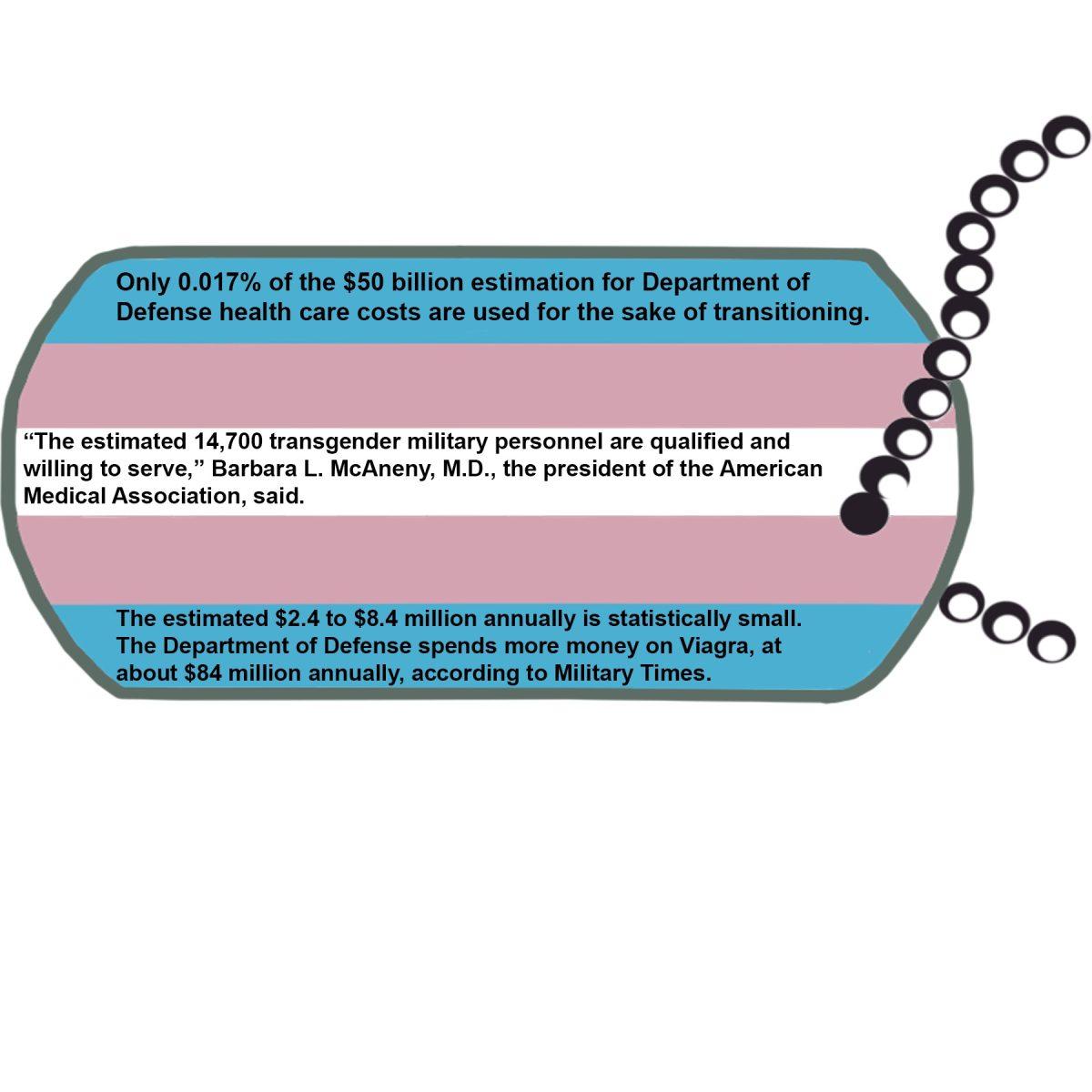
_Abigail Ruhman is a freshman journalism major at MU. She is an opinion columnist who writes about student life, politics and social issues for The Maneater._
Lots of very patriotic Americans would do anything for their troops. They would give up watching football, and give their time to serve those who served the country. The near constant conversation that surrounds “respecting our troops” may lead you to believe that there is nothing that America wouldn’t do anything for service members, but where does America draw the line?
Based on the policy implemented by the Pentagon on April 12, 2019, the line is covering transgender troops medical costs for transitioning. Almost two years after President Donald Trump’s controversial tweet calling for the ban, transgender individuals will be unable to serve unless they serve under their biological sex.
While the ban uses the medical costs of transitioning as a reason, the way the policy works doesn’t actually focus on those costs. New applicants to the military who have a medical history with hormone therapy or sex-reassignment surgery are “presumptively disqualified,” according to ABC News. This is significant because even if the individual has already had the surgery the Pentagon and president are so worried about paying for, they don’t get to serve.
In addition, health care costs associated with transitioning aren’t as expensive as people think. Out of the $50 billion estimation for Department of Defense health care costs, the highest estimate of money used by transgender individuals for the sake of transitioning is 0.017%, according to Forbes. The estimated $2.4 to $8.4 million annually is statistically small. The Department of Defense spends more money on Viagra, at about $84 million annually, according to Military Times.
Being transgender doesn’t make someone less willing or able to serve. In a statement released by the American Medical Association, Barbara L. McAneny, M.D., the president of the organization, explained, “The estimated 14,700 transgender military personnel are qualified and willing to serve. Rather than stigmatizing and banning these patriots, [Department of Defense] should let them serve.”
The statement also explains that even with the diagnosis of gender dysphoria, there is no “medically valid” reason to block transgender individuals from serving in the military. Transgender individuals are not inherently weak or unfit. Being transgender just makes you the subject of a religious debate.
This isn’t about the associated cost or fitness of duty. This is about the lack of respect that transgender individuals get. Even when they are sacrificing their lives, all people care about is their gender identity.
Jessica Maxwell, a Department of Defense spokeswoman, responded to the accusations of discrimination in an email to The Hill by stating, “I would reiterate that the department will continue to treat all individuals with dignity and respect, and every service member is able to express their gender identity.” While the statement has a nice sentiment, the department’s actions do not reflect their words. By asking service members to hide part of their identity, the Trump administration is actively disrespecting those individuals and bringing back the “Don’t Ask, Don’t Tell” days. As long as transgender troops are willing to serve under a gender they do not belong to, they can still serve. The diagnosis of gender dysphoria determines if they are allowed to serve.
While the Department of Defense claims that not all transgender service members will be affected by this ban due to the troops that were out before the ban took effect, the Department of Defense is failing to see how this impacts morale and the overall environment surrounding these troops.
Trump claims transgender troops create “tremendous medical costs and disruption.” For those who are already out, this statement can hurt them even more. The commander in chief of the U.S. military made a discriminatory statement and other troops may take that as license to hurt or taunt transgender troops.
Not only is this ban wrong logically, but it is also morally wrong. Respecting troops shouldn’t exclude those who are different. They still served. They deserve the same amount of opportunity as every other American. Being transgender doesn’t make someone less capable of serving their country, so why does it hinder people’s ability to respect that service member?